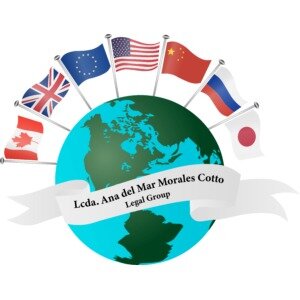Best Citizenship Lawyers in San Juan
Share your needs with us, get contacted by law firms.
Free. Takes 2 min.
List of the best lawyers in San Juan, Puerto Rico
About Citizenship Law in San Juan, Puerto Rico
Citizenship in San Juan, Puerto Rico, is governed by a combination of federal and territorial laws. Puerto Ricans are U.S. citizens, but the territory doesn't have all the same privileges as the states. Navigating citizenship law can be complex due to the unique status of Puerto Rico, which influences issues related to identity, political representation, and civic rights.
Why You May Need a Lawyer
Individuals may require legal counsel for several reasons related to citizenship in San Juan. Common situations include seeking clarification on voting rights, understanding eligibility for federal programs, addressing the legal implications of dual citizenship, or navigating the naturalization process for non-citizens. Legal advice can be crucial for individuals facing legal dilemmas or seeking to exercise their citizenship rights fully.
Local Laws Overview
Key aspects of local laws affecting citizenship in San Juan include the territory's status as a U.S. Commonwealth. This status means that while Puerto Ricans are U.S. citizens by birth, they lack the right to vote in presidential elections and have non-voting representation in Congress. Understanding local laws also involves recognizing the interplay between federal immigration laws and Puerto Rico's territorial regulations, which can impact citizenship-related issues.
Frequently Asked Questions
Do Puerto Ricans need a passport to travel to the U.S. mainland?
No, Puerto Ricans do not need a passport to travel to the U.S. mainland. As U.S. citizens, they can travel freely within the United States.
Can Puerto Ricans vote in U.S. presidential elections?
No, residents of Puerto Rico cannot vote in U.S. presidential elections. However, they can participate in presidential primaries.
Are Puerto Ricans eligible for all federal programs?
Puerto Ricans are eligible for many, but not all, federal programs. Specific benefits may be limited or unavailable due to the territory's status.
How can a non-citizen become a U.S. citizen in Puerto Rico?
Non-citizens must go through the same naturalization process required in the states, involving residency, a background check, and a citizenship test.
Does Puerto Rico have its own citizenship separate from U.S. citizenship?
No, there is no separate Puerto Rican citizenship. Residents are U.S. citizens with specific territorial distinctions.
Is dual citizenship allowed for Puerto Ricans?
The U.S. allows dual citizenship, but individuals should consult legal advice specific to their circumstances and any other country involved.
What are the voting rights of Puerto Ricans residing in the mainland U.S.?
Puerto Ricans who move to the mainland U.S. can vote in all local, state, and federal elections in their state of residence.
How does military service affect citizenship rights for Puerto Ricans?
Puerto Ricans can serve in the U.S. military, and their service can influence eligibility for certain citizenship benefits and protections.
Do taxes differ for Puerto Ricans compared to mainland U.S. citizens?
Yes, residents of Puerto Rico pay local taxes and are generally exempt from federal income taxes, although certain federal tax obligations may still apply.
Can Puerto Ricans run for U.S. presidency?
No, because the U.S. Constitution requires presidential candidates to be natural-born citizens and have a different set of eligibility criteria. Puerto Rican residency factors may affect eligibility.
Additional Resources
For further assistance, consider reaching out to the following resources:
- U.S. Citizenship and Immigration Services (USCIS)
- Office of the Governor of Puerto Rico, Citizenship Status Office
- Puerto Rican Bar Association
- Local Legal Aid Societies
- Community Organizations focus on civic rights in Puerto Rico
Next Steps
If you need legal assistance regarding citizenship in San Juan, it's wise to consult with a qualified attorney specializing in immigration and citizenship law. Start by gathering all relevant documents, such as birth certificates and identification. Then, contact a local law firm or legal aid organization. Schedule a consultation to discuss your specific situation and receive tailored legal advice.
Lawzana helps you find the best lawyers and law firms in San Juan through a curated and pre-screened list of qualified legal professionals. Our platform offers rankings and detailed profiles of attorneys and law firms, allowing you to compare based on practice areas, including Citizenship, experience, and client feedback.
Each profile includes a description of the firm's areas of practice, client reviews, team members and partners, year of establishment, spoken languages, office locations, contact information, social media presence, and any published articles or resources. Most firms on our platform speak English and are experienced in both local and international legal matters.
Get a quote from top-rated law firms in San Juan, Puerto Rico — quickly, securely, and without unnecessary hassle.
Disclaimer:
The information provided on this page is for general informational purposes only and does not constitute legal advice. While we strive to ensure the accuracy and relevance of the content, legal information may change over time, and interpretations of the law can vary. You should always consult with a qualified legal professional for advice specific to your situation.
We disclaim all liability for actions taken or not taken based on the content of this page. If you believe any information is incorrect or outdated, please contact us, and we will review and update it where appropriate.









